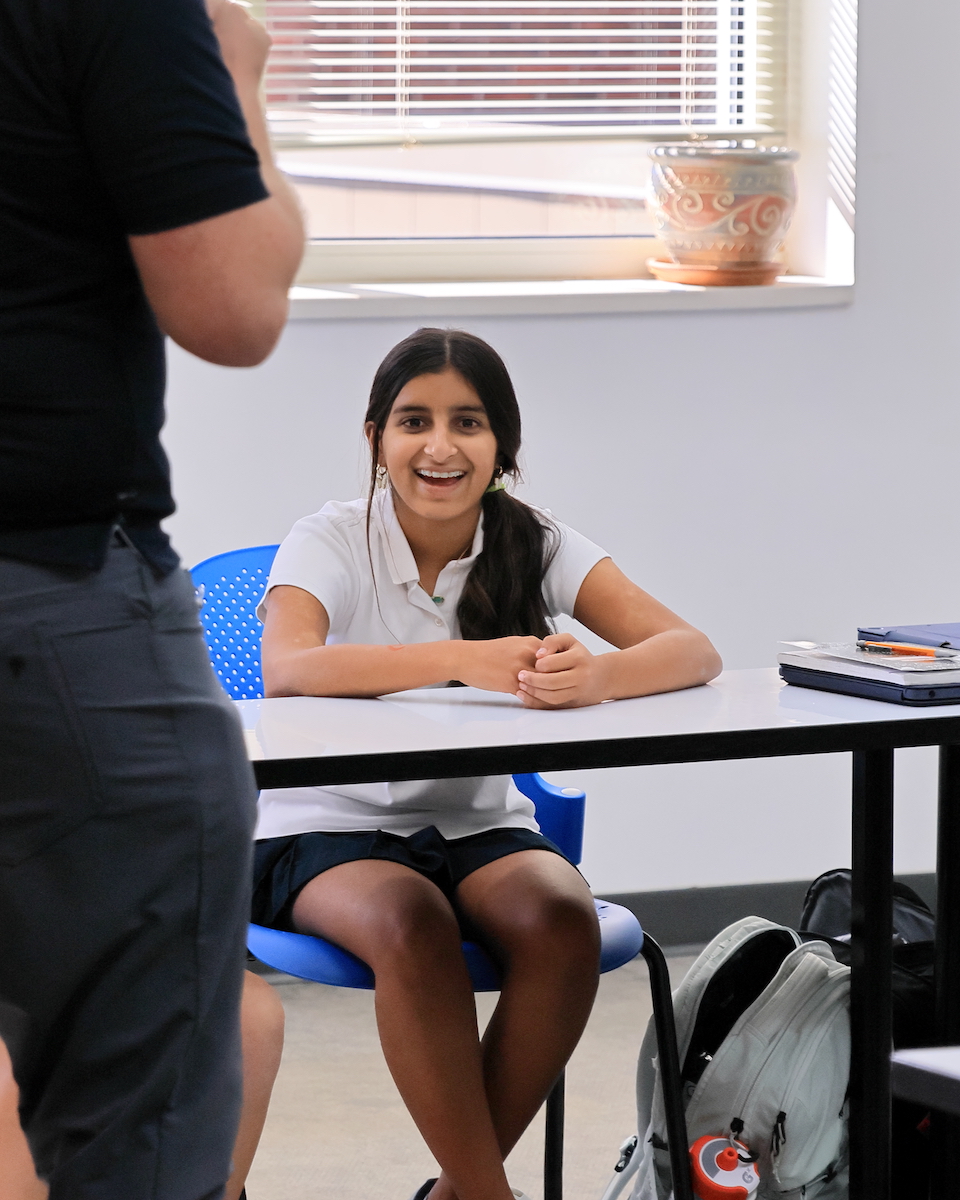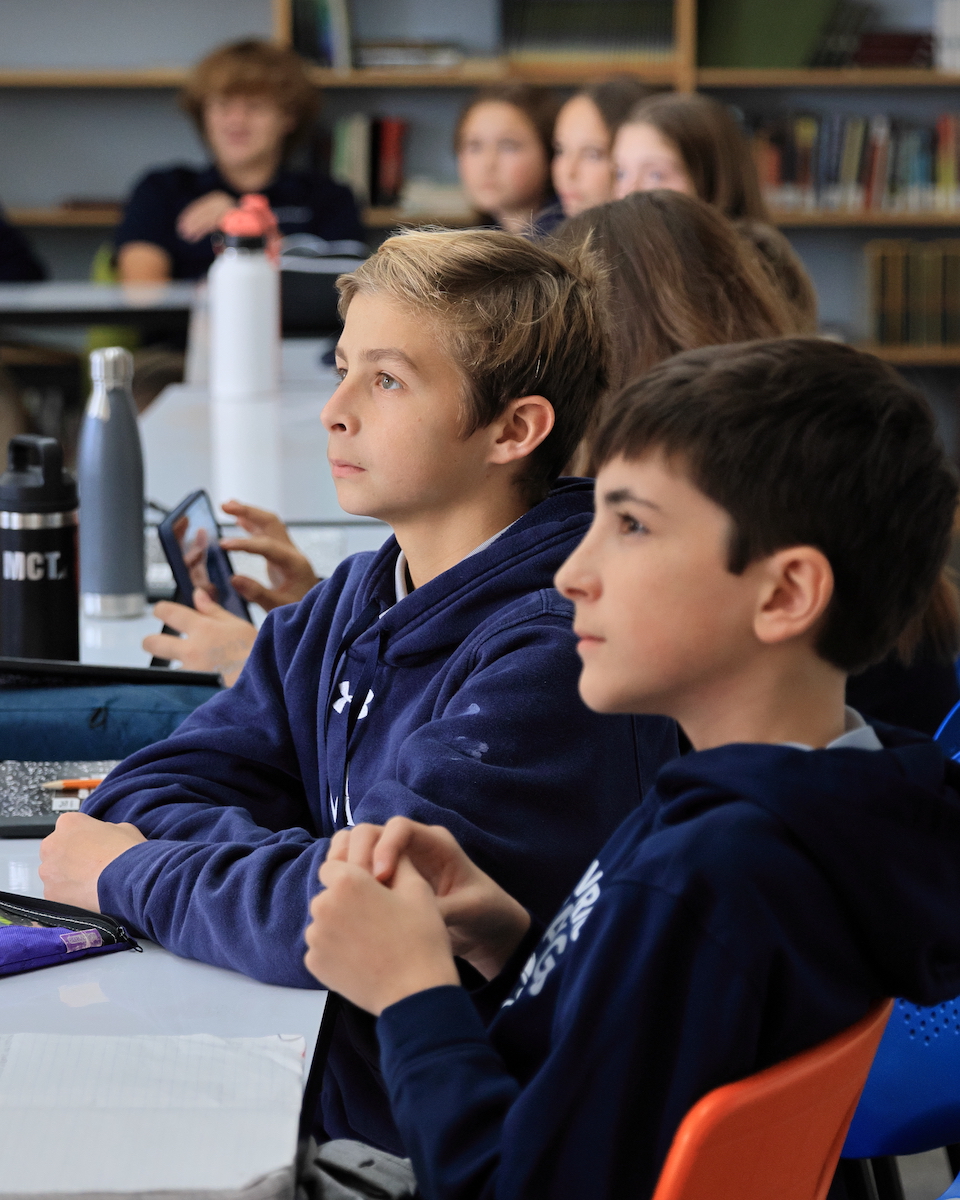During daily Middle School community time, students have the opportunity to practice valuable skills, experience new cultures, and learn alongside their peers in a fun and encouraging environment. This month, in honor of the new year, students are focusing on the skill of goal setting, a critical element of executive functioning that will serve them throughout their time at Mount Vernon and beyond. Executive function and self-regulation skills are the mental processes that enable us to plan, focus attention, remember instructions, and juggle multiple tasks successfully. The Harvard’s Center for The Developing Child offers an illustrative analogy, “Just as an air traffic control system at a busy airport safely manages the arrivals and departures of many aircraft on multiple runways, the brain needs this skill set to filter distractions, prioritize tasks, set and achieve goals, and control impulses.”
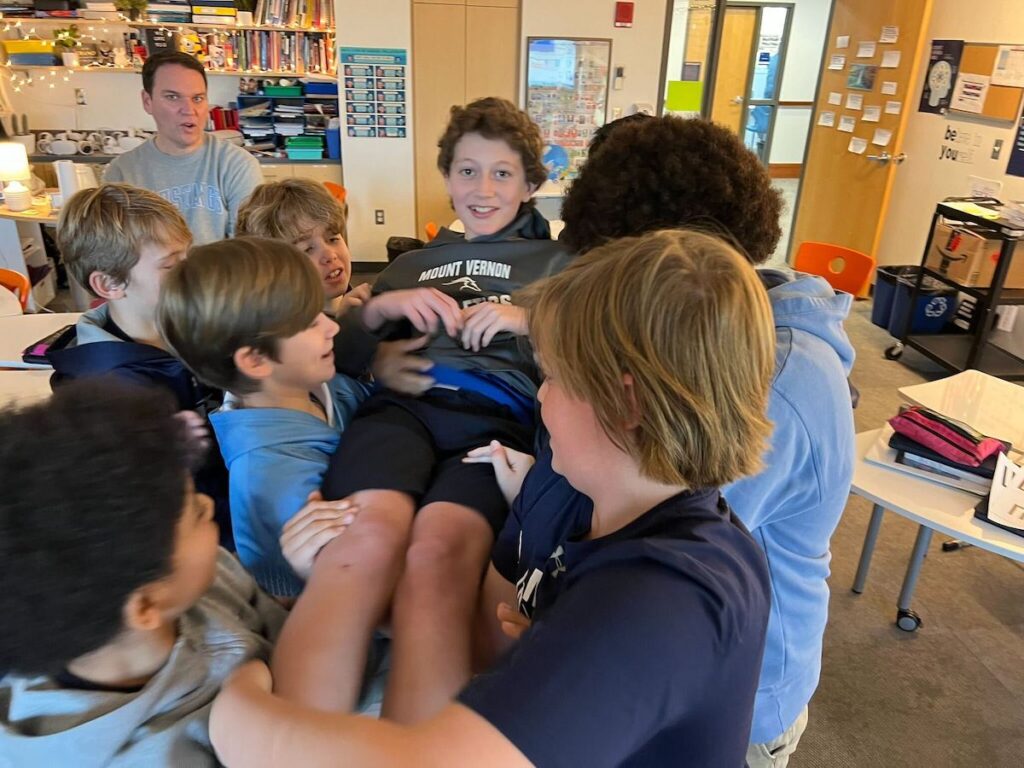
To start this unit on Goal Setting, Middle School students began by identifying areas of their lives they wanted to improve, such as their social interactions, sports performance, or spiritual development. Next, they established an overarching objective and broke it down into smaller, actionable steps to work toward.
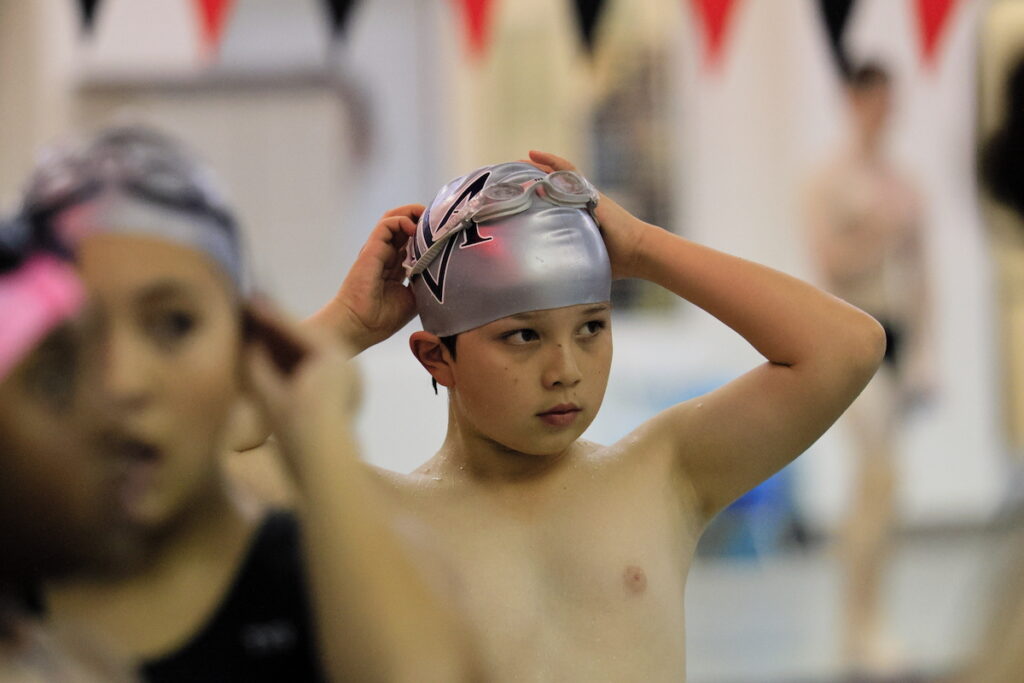
Madison Zgutowicz wants to stay more organized. Madison said, “The first step to staying more organized for me is to start writing down my assignments. If I write down my assignments all in the same place as soon I get them, I think I can stay on top of it.”
Last week, students focused on writing goals for the ERB (Educational Records Bureau) standardized test. Students were given prompts about their plan for the night before the test, like “What will you eat for dinner”, “Will you turn off your electronics early on in the night?” or “Will you go to bed early?”, all basic preparedness for a morning event. This week, students will reflect on their actions the day of the test, like “Were you on time?”, “Did you eat breakfast?”, and “Where you relaxed during the test?” to help them reflect on what their goals should be the next time they have an important event to plan for.
THE IMPORTANCE OF GOAL SETTING
Chief Learning & Innovation Officer Bo Adams states, “Goal setting is to executive functioning as a destination is to a GPS. These activities aim to teach students the importance of setting goals for themselves and to give them something to strive for in terms of motivation, engagement, and empowerment.” If students are empowered to plan their own futures, they can set incremental goals to accomplish anything they set their minds to.
The teacher who led the planning of this community activity was Middle School IDEA Coordinator Kourtnay Y. Abernathy, who emphasized the importance of writing down goals and creating a plan to achieve them. She shared, “Even as adults, we set goals. The first step to setting a goal is to write it down. If we don’t write it down and create a plan it’s never going to come to pass. Also with a plan, we want to identify the challenges and have a plan on how to handle them. It’s starting the trend now so it becomes habitual like brushing your teeth.”
OVERCOMING OBSTACLES
Part of the students’ activity was to identify the challenges. During their initial personal goal setting session, some students identified a lack of time or motivation to complete their goals. They created incentives for themselves to complete them in the set time frame to ultimately create habits they can follow long-term.
Carter Rankin, Class of 2027 wants to get a job because he wants to treat himself to things his parents won’t buy for him, “I’m going to apply and hopefully get a job somewhere, but I may be too young to work at some places and there may be more qualified people applying for the same job. But all I can do is submit the best resume and practice my interview skills as much as possible.”
Cam Flotta, Class of 2027 who attended the International Theater Festival at Indiana University Bloomington last summer would like to be qualified to go again this year. “If I can get a superior in Thescon this month, I can go again this year. If I practice every day, I think I will be good enough to score a superior. Homework might be in the way though. I can do homework on my way home from school or during lunch so that way I can practice my Thescon act while I’m at home.”
GOAL SETTING IN LOWER SCHOOL
Throughout a student’s career at The School, educators emphasize goal setting to prepare them for the future. Executive Director of Learning and Innovation Nicole Martin states, “In Lower School, we use goal setting collaboratively with students as a way to academically level up in a particular skill. Students and teachers have one on one conversations. This can occur for both academics, work habits, and mindsets goal setting. In Kindergarten, they goal-set daily on which classroom norms each student will work on that day. The School also encourages family involvement in goal-setting through their parent conferences and home-to-school connections throughout the year.”
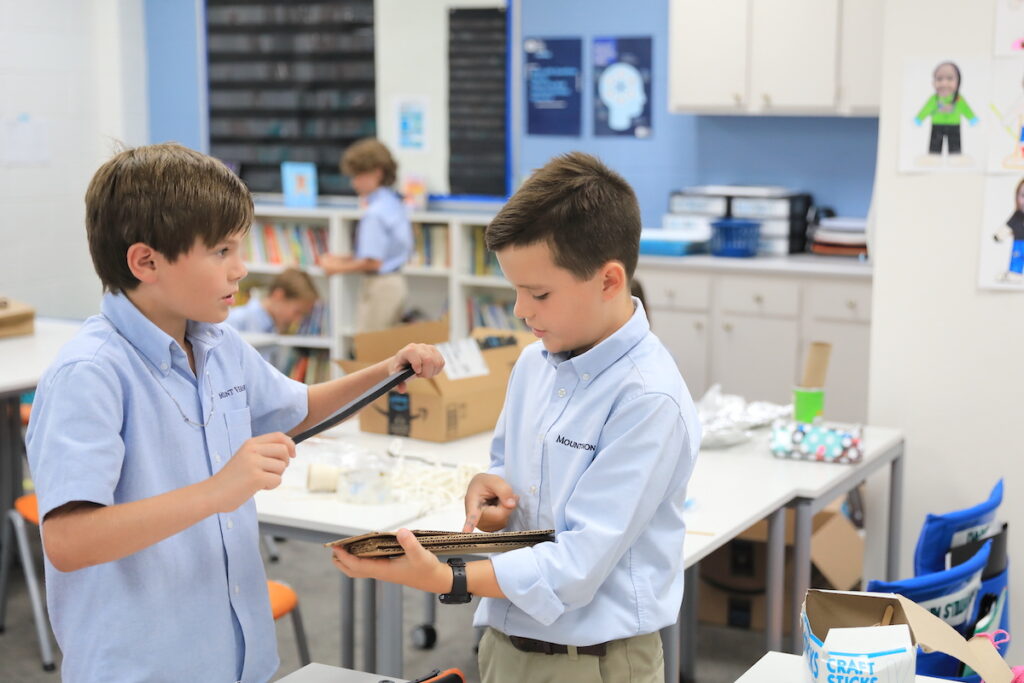
Bo Adams also mentioned “The goal setting activities at The Mount Vernon School aim to provide students with the skills they need to succeed not only in the classroom but also in the professional world. By learning to set and work towards goals at a young age, students develop the executive functioning skills they need to navigate their future with confidence and success.”
GOAL SETTING IN UPPER SCHOOL
In the Upper School, goal setting is an important part of the learning process. Students use Altitude Learning to set and track their goals. They can tag any teacher to help hold them accountable and determine if they have met the goal. Evidence in the form of work completed is attached to the goal, and once the goal is met, students move on to a new one. This process helps students take ownership of their learning and set ambitious yet achievable goals. Lower and Middle School students begin to understand the importance of setting goals through practice. As students mature, their goal setting skills enable them to set goals that align with their long-term academic and career goals.
Goals setting is a critical skill when students work with the College Counseling team. Students leverage voice and choice to pick a pathway that highlights their interests to solidify graduation requirements and set them up for the future they are designing, and the impact they chose to create.
UP NEXT
As Middle School students continue into MODs 3 and 4, they will spend time discussing their original goals from the new year. Some students will stick with their commitments and others will not. Kourtnay Abernathy explains, “If they haven’t stuck with their goals, that’s okay. We will look back to see why that goal didn’t work, create a new one, and fail up.”
